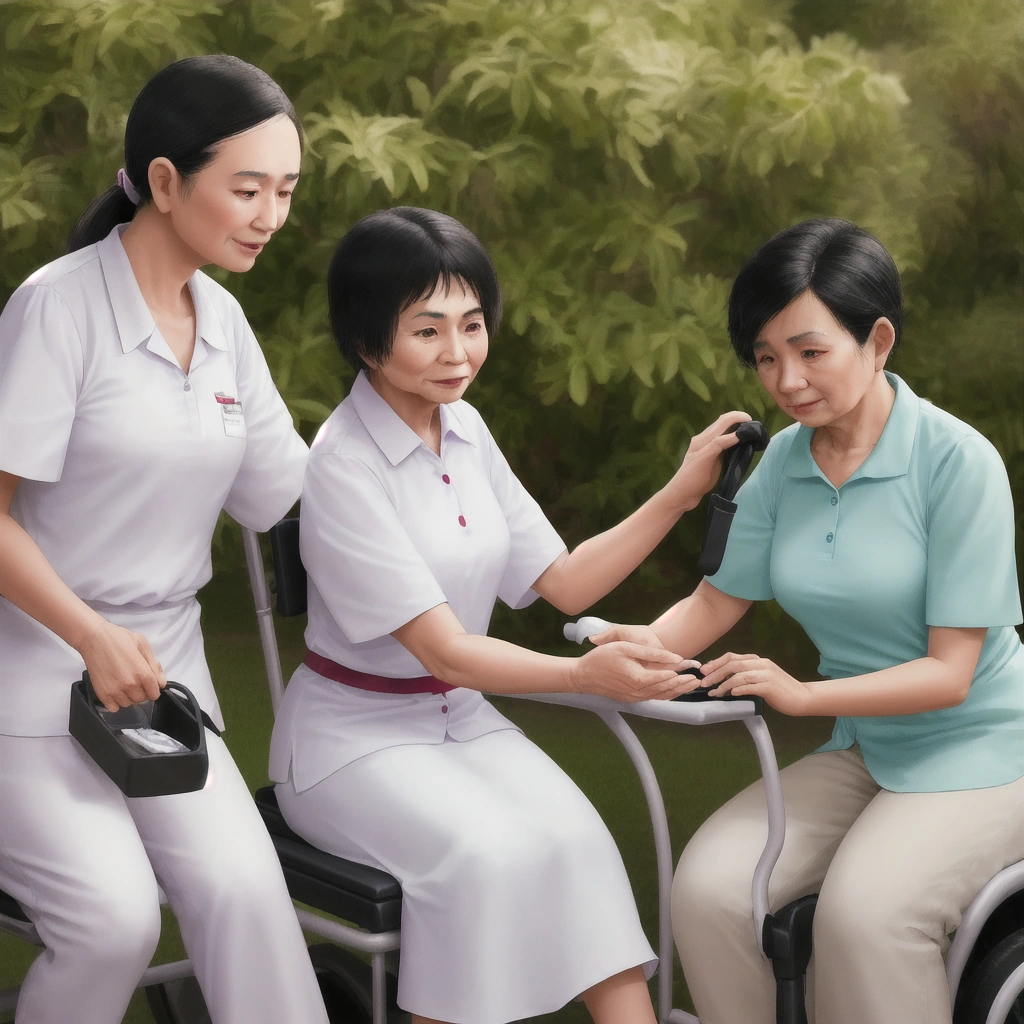Caring Across Cultures: Filipino Elder Care Workers in Thailand Since RA 8042 & Franchise Opportunities
The exodus of Filipinos seeking better opportunities abroad is a deeply ingrained part of the nation’s narrative. Millions have traversed borders, contributing significantly to the Philippine economy through remittances while simultaneously filling critical labor gaps in host countries. Among these overseas Filipino workers (OFWs), a significant portion is dedicated to elderly care, a sector experiencing growing demand globally, particularly in countries like Thailand. This article delves into the experiences of Filipino elderly care workers in Thailand, exploring the challenges they face, the cultural adjustments they make, and the legal frameworks designed to protect them. We will also examine the landscape of franchising opportunities available to OFWs as a pathway towards financial independence and eventual return to the Philippines.
The Migrant Workers and Overseas Filipinos Act of 1995 (Republic Act No. 8042), enacted on July 15, 1995, serves as a cornerstone of protection for OFWs. This landmark legislation aimed to institute policies that safeguard the rights and promote the welfare of Filipino migrant workers, acknowledging their significant contribution to the national economy. The Act covers various aspects of overseas employment, from pre-departure orientation and skills training to on-site assistance and repatriation procedures. It also established mechanisms for addressing illegal recruitment and employer abuse, crucial elements in protecting vulnerable workers in foreign lands. While the Act’s implementation has faced challenges over the years, it remains the primary legal instrument designed to ensure fair and ethical treatment for OFWs.
Thailand, with its aging population and growing middle class, has become a significant destination for Filipino caregivers. These OFWs often leave behind their own families, enduring prolonged periods of separation to provide essential care for the elderly in Thailand. Their work encompasses a wide range of tasks, including personal care, medication management, companionship, and light housekeeping. The emotional and physical demands of this profession can be substantial, requiring patience, compassion, and a deep commitment to the well-being of their charges. Furthermore, navigating the cultural nuances of a foreign land adds another layer of complexity to their experience.
Culture shock is a common experience for OFWs, particularly those working in elderly care, where intimate interaction with the host family is inherent. Filipinos, known for their warm and familial culture, often find themselves adjusting to different customs, traditions, and communication styles in Thailand. The language barrier can be a significant hurdle, impacting not only their ability to perform their duties effectively but also their ability to build relationships and integrate into the local community. Dietary differences, religious practices, and social etiquette are other areas where cultural adjustments are necessary. Successfully navigating these differences requires adaptability, open-mindedness, and a willingness to learn and embrace the Thai way of life.
Beyond the immediate challenges of adjusting to a new environment, Filipino caregivers in Thailand also grapple with issues of homesickness, loneliness, and the emotional strain of being separated from their loved ones. Maintaining close ties with family back home becomes paramount, often relying on technology to bridge the geographical divide. However, the emotional toll of prolonged separation can be significant, impacting mental health and overall well-being. Support networks, both within the Filipino community in Thailand and through online platforms, play a crucial role in helping OFWs cope with these challenges.
While the Migrant Workers Act provides a framework for protection, the reality of enforcement and access to legal remedies can be complex. OFWs may encounter difficulties in asserting their rights, particularly in cases involving unfair labor practices or disputes with employers. Language barriers, lack of awareness about legal processes, and fear of repercussions can deter OFWs from seeking redress. Strengthening mechanisms for monitoring working conditions, ensuring access to legal aid, and empowering OFWs with knowledge of their rights are crucial steps in enhancing the effectiveness of the Act’s protective measures.
Looking towards the future, the prospect of entrepreneurship and financial independence becomes a beacon of hope for many OFWs. Franchising offers a potentially attractive pathway towards achieving this goal. The structured business model, established brand recognition, and support system provided by franchisors can mitigate some of the risks associated with starting a business from scratch. For OFWs considering a return to the Philippines, franchising can provide a viable option for reintegration into the domestic economy, leveraging the skills and experience gained abroad to build a sustainable livelihood.
There are various franchising opportunities available to OFWs, catering to a range of investment levels and interests. Food and beverage franchises are a popular choice, capitalizing on the Filipinos’ love for culinary delights. Retail franchises, service-oriented businesses, and even educational franchises offer diverse avenues for entrepreneurial pursuits. Careful research, thorough due diligence, and a realistic assessment of market conditions are essential for success in the franchising world. Organizations that provide support and guidance to OFWs exploring franchising opportunities can play a crucial role in facilitating this transition towards entrepreneurship.
The journey of Filipino elderly care workers in Thailand is a testament to their resilience, adaptability, and unwavering commitment to providing for their families. They navigate cultural differences, overcome emotional challenges, and contribute significantly to the well-being of the elderly population in their host country. The Migrant Workers Act of 1995, while imperfect, represents a significant step towards protecting their rights and promoting their welfare. As the demand for elderly care continues to grow globally, the experiences of these OFWs highlight the importance of strengthening legal frameworks, fostering cultural understanding, and creating pathways for their professional and personal development. Franchising emerges as a potential avenue for empowering OFWs, offering a bridge towards financial independence and a more secure future. For those seeking employment opportunities abroad, resources like OFWJobs.org can provide valuable information and guidance. OFWJobs.org
The evolving landscape of global migration necessitates ongoing dialogue and collaboration between sending and receiving countries to address the challenges and opportunities that arise. Ensuring fair and ethical treatment, promoting cultural exchange, and empowering OFWs with the tools for success are essential elements in building a more equitable and sustainable future for migrant workers worldwide. The story of Filipino caregivers in Thailand is a microcosm of the larger narrative of global migration, reflecting the complexities, sacrifices, and enduring hope that define the lives of millions who seek a better life beyond their borders. Supporting these individuals, recognizing their contributions, and ensuring their well-being is not just a moral imperative but a crucial element in fostering a more just and interconnected world.


